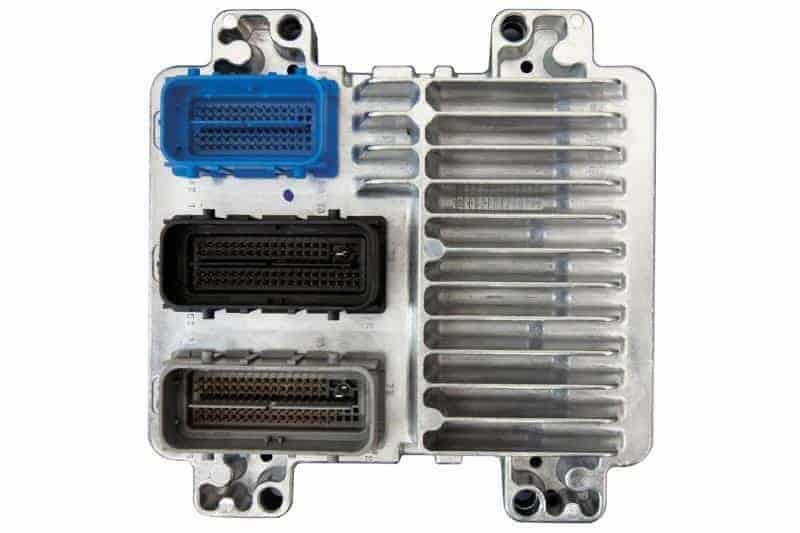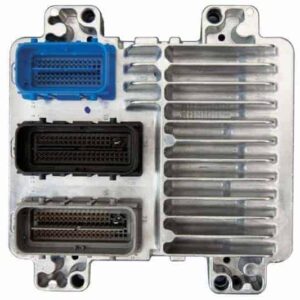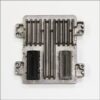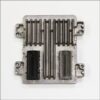If you’re dealing with a frustrating no-start condition, a persistent check engine light, or erratic engine behavior in your GM vehicle, a failing Engine Control Module (ECM) is a very likely culprit. As a technician with over two decades of experience under the hood, I’ve seen how a faulty ECM can turn a reliable car into a source of constant headaches. This isn’t just a part; it’s the brain of your engine, and when it falters, everything from fuel economy to transmission shifting can be affected. That’s why we offer this direct-fit, professionally programmed ECM as a reliable, straightforward solution.
This isn’t a generic, off-the-shelf computer. We take the guesswork and the expensive trip to the dealership out of the equation. When you purchase this module, you simply provide us with your vehicle’s 17-digit Vehicle Identification Number (VIN). Our experts will then flash the unit with the latest, most stable software directly from GM, ensuring it’s perfectly matched to your vehicle’s specific configuration. This process restores factory performance and can often resolve issues caused by outdated or corrupted software—a problem I see frequently in the shop.
Case Study: A Tricky Diagnosis
I remember a 2008 Chevy Trailblazer that came into the bay with an intermittent stalling problem that no one could solve. The owner had replaced sensors and checked wiring, but the issue persisted randomly. After scanning, we found no hard codes, just a history of communication loss faults (U-codes). Experience pointed me toward the ECM. Even though the original module seemed fine on the bench, its internal software was likely corrupted. We installed one of our pre-programmed ECMs, flashed with the latest GM updates for that VIN. The stalling vanished immediately. It’s a classic example of how having the correct, updated software is just as critical as the hardware itself.
Is Your Vehicle Showing These ECM Failure Signs?
A failing computer can manifest in numerous ways. If you’re experiencing any of the following, it might be time to replace your ECM:
- ✔ Check Engine Light is illuminated, often with codes like P0601, P0606, or other internal processor faults.
- ✔ Engine cranks but refuses to start.
- ✔ Unexplained drop in fuel mileage.
- ✔ Rough idling, stalling, or hesitation during acceleration.
- ✔ Automatic transmission shifts harshly or at the wrong times.
- ✔ Loss of communication with the scan tool or other modules (U-codes).
- ✔ The vehicle’s anti-theft or security light stays on.
A Straightforward Guide to Installation
Replacing the ECM is a task many DIYers can handle with basic tools. Our pre-programming service makes it a plug-and-play process, though some models may require a security relearn procedure, which is simple to perform.
- Safety First: Disconnect the negative terminal from your vehicle’s battery to prevent any electrical shorts.
- Locate the ECM: The location varies by model (see fitment list below). Common spots include the engine compartment (often on the firewall or near the air cleaner box) or behind the fan shroud.
- Disconnect Connectors: Carefully unclip the wiring harness connectors from the old ECM. They often have locking tabs that need to be released. Avoid pulling on the wires themselves.
- Remove the Old Module: Unbolt the old ECM from its mounting bracket and remove it from the vehicle.
- Install the New Module: Bolt your new, pre-programmed ECM into place and securely re-attach the wiring harness connectors. Ensure they click into place.
- Reconnect Battery: Re-attach the negative battery terminal.
- Perform Security Relearn (If Needed): For some GM vehicles, you may need to perform a simple key-cycle procedure to sync the new ECM with the anti-theft system. This typically involves turning the key to the ‘ON’ position for 10-15 minutes, then off, and repeating two more times before starting the engine.
Verified Vehicle Compatibility
This ECM, part number 12590032, is a direct replacement for a wide array of GM vehicles and is interchangeable with service numbers 12602044, 12603530, 12605843, 12607096, 12630457, and 19210737. It fits many models including, but not limited to: Buick Allure & LaCrosse (5.3L), Cadillac CTS-V & DTS, Chevy Colorado, Impala, & Trailblazer, GMC Envoy, Pontiac G6, Saturn Aura, and many more. Please review the detailed fitment list to confirm this is the correct part for your specific year, model, and engine combination.
Choosing this pre-programmed 2008-2009 Allure Engine Control Module is the most efficient way to get your vehicle running right again. It eliminates the need for expensive dealer programming and ensures your car’s central computer has the most reliable software available. Don’t let a faulty ECM keep you off the road—get the right part, programmed and ready to install.
Frequently Asked Questions
Do I need to get this ECM programmed by a dealer?
No. This is the biggest benefit we offer. We program the module to your car’s specific VIN before we ship it. It arrives ready to be installed, saving you time and money.
What is a VIN and where do I find it?
The VIN is your car’s unique 17-digit identification number. You can find it on your vehicle’s registration, insurance card, or on a small plate on the driver’s side of the dashboard, visible through the windshield.
How do I know if this part number 12590032 is correct for my car?
The best way is to check the number on your existing ECM. However, this module also replaces several other service numbers (listed above). You can also use our detailed compatibility list or contact us with your VIN, and we’ll verify the fitment for you.
Will this fix my vehicle’s security/anti-theft system issues?
If the security light is on due to a faulty ECM, this will likely solve the problem. After installation, some vehicles require a simple security relearn procedure (key-on, key-off cycles) to sync the new ECM. Instructions are readily available online for your specific model.
Is this a reliable, long-term fix?
Absolutely. We use quality modules and flash them with the latest stable software from GM. This addresses both potential hardware failure and common software glitches, providing a dependable solution to restore your vehicle’s performance.



